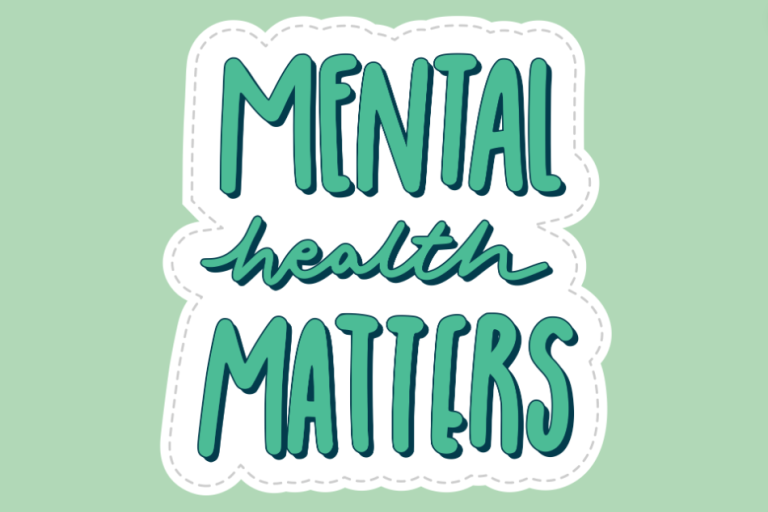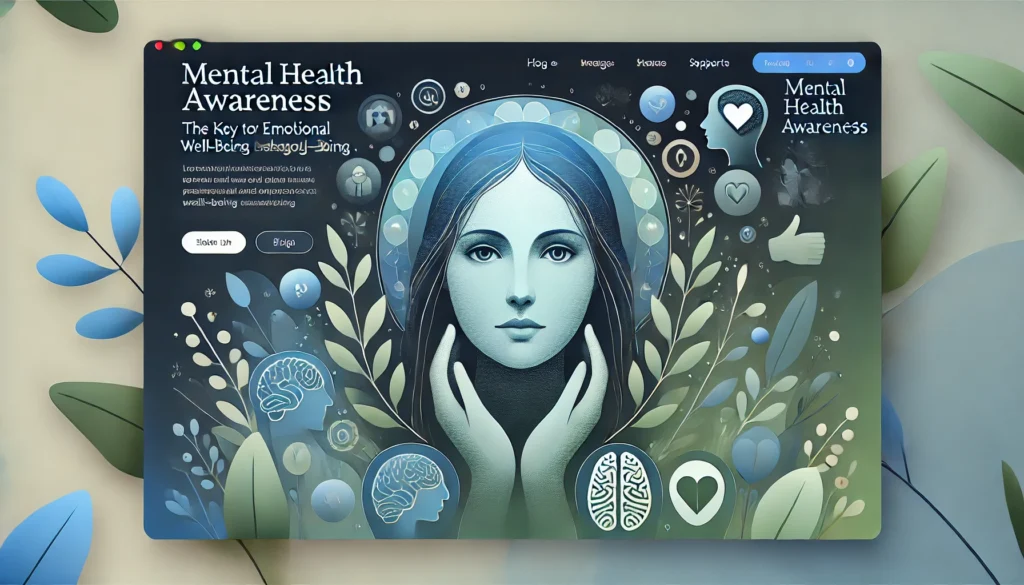Introduction: The Importance of Mental Health Awareness
Mental health is the foundation of our emotional, psychological, and social well-being. Just like physical health, mental health affects how we think, feel, and act in our everyday lives. From managing stress to making important decisions and forming relationships, mental health plays a critical role in shaping our experiences. Unfortunately, mental health has long been stigmatized, preventing many from seeking the support they need.
With mental health awareness on the rise, we are slowly breaking down these barriers. This blog aims to shed light on the importance of mental health, recognizing signs and symptoms, and taking actionable steps to improve overall mental well-being.
Understanding Mental Health Awareness
Mental health encompasses more than just the absence of mental illness. It involves emotional resilience, self-awareness, coping mechanisms, and the ability to manage stress. When we prioritize mental health, we equip ourselves with the tools necessary to navigate the ups and downs of life.
However, mental health is a broad concept that impacts different aspects of life. It includes:
- Emotional well-being: How we feel, process, and manage our emotions.
- Psychological well-being: Our cognitive processes, including thought patterns and decision-making abilities.
- Social well-being: How we interact with others, maintain relationships, and contribute to our communities.
When any of these aspects are compromised, it can affect overall mental health, potentially leading to mental health disorders.
Common Mental Health Disorders
Mental health disorders are more common than many realize. Understanding these conditions helps remove the stigma surrounding them and creates a culture of empathy and support. Here are some of the most prevalent mental health issues:
- Anxiety Disorders: Characterized by excessive worry or fear, anxiety disorders include generalized anxiety disorder (GAD), panic disorder, and social anxiety disorder.
- Depression: A mood disorder marked by persistent feelings of sadness, hopelessness, and loss of interest in activities. Depression affects both the mind and body.
- Post-Traumatic Stress Disorder (PTSD): A mental health condition triggered by experiencing or witnessing traumatic events. PTSD can lead to flashbacks, nightmares, and severe anxiety.
- Bipolar Disorder: This disorder causes extreme mood swings between emotional highs (mania) and lows (depression).
- Obsessive-Compulsive Disorder (OCD): Characterized by repetitive, unwanted thoughts (obsessions) and behaviors (compulsions) aimed at reducing anxiety.
These disorders can significantly impact an individual’s quality of life, but they are treatable with the right intervention and support.
Signs and Symptoms of Mental Health Problems
Mental health conditions often go unnoticed, but early detection can make a significant difference. Here are some common signs and symptoms that may indicate a mental health problem:
- Persistent sadness or irritability
- Changes in sleep patterns (insomnia or oversleeping)
- Social withdrawal and isolation
- Loss of interest in activities once enjoyed
- Difficulty concentrating or making decisions
- Excessive worry or fear
- Unexplained physical ailments (headaches, stomach issues)
- Feeling hopeless or helpless
If these signs persist for an extended period, it’s important to seek professional help. Mental health problems are not a weakness; they are health issues that deserve attention and care.
The Impact of Mental Health on Daily Life
Mental health problems can influence every aspect of a person’s life, from work performance to relationships. Here’s how poor mental health affects daily life:
- Work and productivity: Employees with untreated mental health issues often experience burnout, absenteeism, and reduced productivity. In severe cases, it may lead to job loss or financial instability.
- Relationships: Mental health struggles can strain relationships with family, friends, and partners. Emotional withdrawal, mood swings, or irritability may create conflict and distance.
- Physical health: There’s a strong connection between mental and physical health. Chronic stress, depression, or anxiety can manifest physically in the form of fatigue, headaches, and weakened immune systems.
Unfortunately, the stigma surrounding mental health prevents many people from seeking help. This is why mental health awareness is so crucial—it encourages open discussions and allows individuals to seek help without fear of judgment.

Mental Health Awareness: Why It Matters
Raising awareness about mental health is not just important; it’s life-saving. When we increase mental health awareness, we:
- Normalize mental health conversations: Open discussions help reduce the stigma and shame associated with mental health struggles.
- Encourage early intervention: The sooner people recognize the signs of mental health problems, the sooner they can seek treatment.
- Foster empathy: Awareness cultivates understanding, helping friends, family, and colleagues offer meaningful support.
Awareness campaigns like World Mental Health Awareness Day have made strides in bringing mental health into the spotlight, but there’s still much work to be done to create a more compassionate society.
Steps to Improve Mental Health
Maintaining good mental health requires effort, just like physical health. Here are some practical steps you can take to improve your mental well-being:
- Exercise regularly: Physical activity boosts mood, reduces stress, and improves cognitive function.
- Eat a balanced diet: Nutrition plays a significant role in brain health. Incorporate whole foods, fruits, vegetables, and lean proteins into your diet.
- Practice mindfulness and meditation: Mindfulness practices help reduce anxiety and improve emotional regulation.
- Stay connected: Social support is critical for mental health. Surround yourself with people who uplift and support you.
- Seek therapy or counseling: Professional therapy provides tools to manage emotions, cope with stress, and develop healthier thought patterns.
- Set boundaries: Learn to say no and protect your mental energy. Overcommitment can lead to burnout and overwhelm.
- Sleep well: Quality sleep is essential for mental clarity, emotional stability, and overall well-being.

Mental Health Support Systems
No one should face mental health challenges alone. Building a robust support network can make all the difference in someone’s journey toward healing. Here’s how to build and access a support system:
- Friends and family: Loved ones can offer emotional support and encouragement, especially during tough times.
- Mental health professionals: Therapists, counsellors, and psychologists provide guidance and tools to navigate mental health struggles.
- Support groups: Whether in-person or online, support groups connect individuals facing similar challenges, creating a safe space to share experiences.
- Mental health organizations: Groups like the National Alliance on Mental Illness (NAMI) and the American Psychological Association offer resources, hotlines, and educational materials for those in need.
Conclusion: Take Charge of Your Mental Health Awareness
Mental health is not a destination; it’s a journey. Prioritizing your mental well-being is one of the most important things you can do for yourself. It’s okay to not be okay, and it’s even more okay to seek help when needed.
If you or someone you know is struggling with mental health, know that support is available. There’s no shame in reaching out. By raising awareness and promoting open conversations, we can collectively break the stigma and create a world where mental health is a priority for all.

Improve Your Health
Mental Health Awareness introduces:
Improve your health with an amazing tonic that improves your:
– Energy
– Metabolism
– Digestion




You really make it appear really easy with your presentation however I find this topic to be really something that I feel I might by no means understand. It sort of feels too complicated and extremely huge for me. I’m having a look forward for your subsequent submit, I?¦ll try to get the hang of it!
Thank you for your thoughtful comment! I totally understand — some topics can feel overwhelming at first, but with time and exploration, things tend to click into place. I’m glad you’re interested, and I’m excited to hear you’re looking forward to the next post! In the meantime, feel free to check out more blogs at **Blogging Zone** where you’ll find even more insights and articles that might help clarify things. Keep exploring, and I’m sure you’ll get the hang of it soon!